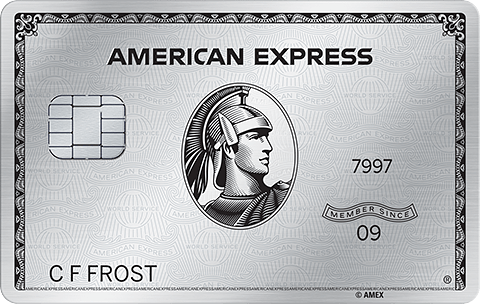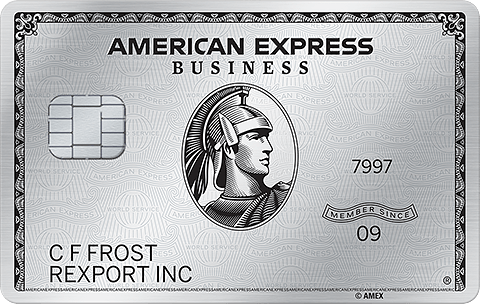AwardWallet may receive compensation from advertising partners when you visit our site, click on a link, when you are approved for a credit card, or when an account is opened. Terms Apply to the offers listed on this page. Enrollment is required for select Amex benefits. The opinions expressed here are our own and have not been reviewed, provided, or approved by any bank advertiser. Here’s our complete list of Advertisers.
Offers for the Chase Freedom Flex℠ and Ink Business Preferred® Credit Card are not available through this site. Some offers may have expired. Please see our card marketplace for available offers
If you're familiar with flexible points, you'll know they are the undisputed leaders in points and miles. These types of rewards can be used in a variety of ways, including transfers to airline and hotel partners, statement credits, gift cards, flights, and other types of travel. Among the handful of well-known flexible point currencies, Chase Ultimate Rewards and American Express Membership Rewards are the most popular. But, if you're deciding which one to focus on, you may be wondering: which is better?
Let's take a look at how you earn these points, the different methods of redeeming them, and which one may be a better fit for you.
Page Contents
- Chase Ultimate Rewards vs. Amex Membership Rewards: Earning Points
- Chase Ultimate Rewards vs. Amex Membership Rewards: Card Restrictions
- Chase Ultimate Rewards vs. Amex Membership Rewards: Redeeming Points
- Chase Ultimate Rewards vs. Amex Membership Rewards: Transfer Partners
- Chase Ultimate Rewards vs. Amex Membership Rewards: Combining Points
- Which Should You Choose: Chase Ultimate Rewards or Amex Membership Rewards?
Chase Ultimate Rewards vs. Amex Membership Rewards: Earning Points
Both American Express and Chase are card issuers, which means they have a variety of different cards on offer for earning points. Both issuers provide personal and business cards and even offer premium travel credit cards. It's clear that they compete with one another, but there are differences in the ways you'll earn points and the benefits you'll receive as a cardholder.

Personal cards
American Express has a handful of different personal cards on offer, including its high-end American Express Platinum Card®. This card charges an annual fee of $895 (Rates & Fees) but offers multiples of that fee in available credits each year. It also offers elite status with Marriott, Hilton, Leading Hotels of the World, and more. Enrollment is required for select Amex benefits.
Aside from this, the card earns 5X points on flights booked directly with airlines or with American Express Travel® (on up to $500,000 on these purchases per calendar year) and 5X points on prepaid hotels (including Fine Hotels + Resorts® and The Hotel Collection) booked through American Express Travel®.
- You may be eligible for as high as 175,000 Membership Rewards® points after you spend $8,000 in eligible purchases on your new Card in your first 6 months of Card Membership. Welcome offers vary and you may not be eligible for an offer. Apply to know if you're approved and find out your exact welcome offer amount - all with no credit score impact. If you're approved and choose to accept the Card, your score may be impacted.
- Get more for your travels with 5X Membership Rewards® points on all flights and prepaid hotel bookings through American Express Travel®, including Fine Hotels + Resorts® and The Hotel Collection bookings. You earn 5X points on flights purchased directly from airlines or through American Express Travel® on up to $500,000 on these purchases per calendar year.
- More Value! With over 1,550 airport lounges - more than any other credit card company on the market* - enjoy the benefits of the Global Lounge Collection®, over $850 of annual value, with access to Centurion Lounges, 10 complimentary Delta Sky Club® visits when flying on an eligible Delta flight (subject to visit limitations), Priority Pass Select membership (enrollment required), and other select partner lounges. * As of 07/2025.
- More Value! $200 Uber Cash + $120 Uber One Credit: With the Platinum Card® you can receive $15 in Uber Cash each month plus a bonus $20 in December when you add your Platinum Card® to your Uber account to use on rides and orders in the U.S when you select an Amex Card for your transaction. Plus, when you use the Platinum Card® to pay for an auto-renewing Uber One membership, you can get up to $120 in statement credits each calendar year. Terms apply.
- More Value! $300 Digital Entertainment Credit: Get up to $25 in statement credits each month after you pay for eligible purchases with the Platinum Card® at participating partners. Enrollment required.
- More Value! $600 Hotel Credit: Get up to $300 in statement credits semi-annually on prepaid Fine Hotels + Resorts® or The Hotel Collection* bookings through American Express Travel® using the Platinum Card®. *The Hotel Collection requires a minimum two-night stay.
- New! $400 Resy Credit + Platinum Nights by Resy: When you use the Platinum Card® to pay at U.S. Resy restaurants and to make other eligible purchases through Resy, you can get up to $100 in statement credits each quarter with the $400 Resy Credit benefit. Plus, with Platinum Nights by Resy, you can get special access to reservations on select nights at participating in demand Resy restaurants with the Platinum Card®. Simply add your eligible Card to your Resy profile to book and discover Platinum Nights reservations near you, enrollment required.
- More Value! $209 CLEAR® Plus Credit: CLEAR® Plus helps get you to your gate faster by using unique facial attributes to verify you are you at 50+ airports nationwide. You can cover the cost of a CLEAR Plus Membership* with up to $209 in statement credits per calendar year after you pay for CLEAR Plus with the Platinum Card®. *Excluding any applicable taxes and fees. Subject to auto-renewal.
- $200 Airline Fee Credit: Select one qualifying airline and then receive up to $200 in statement credits per calendar year when incidental fees, such as checked bags and in-flight refreshments, are charged by the airline to the Platinum Card® Account*. American Express relies on airlines to submit the correct information on airline transactions to identify incidental fee purchases. If you do not see a credit for a qualifying incidental purchase on your eligible Card after 8 weeks, simply call the number on the back of your Card. Qualifying airlines are subject to change. See terms & conditions for more details.
- Start your vacation sooner, and keep it going longer. When you book Fine Hotels + Resorts® through American Express Travel®, enjoy noon check-in upon arrival, when available, and guaranteed 4PM check-out.
- New! $300 lululemon Credit: Enjoy up to $75 in statement credits each quarter when you use the Platinum Card® for eligible purchases at U.S. lululemon retail stores (excluding outlets) and lululemon.com. That's up to $300 in statement credits each calendar year. Enrollment required.
- $155 Walmart+ Credit: Receive a statement credit* for one monthly Walmart+ membership (subject to auto-renewal) after you pay for Walmart+ each month with the Platinum Card®. *Up to $12.95 plus applicable local sales tax. Plus Ups not eligible.
- $100 Saks Credit: Get up to $100 in statement credits annually for purchases at Saks Fifth Avenue or saks.com on the Platinum Card®. That's up to $50 in statement credits from January through June and up to $50 in statement credits from July through December. No minimum purchase required. Enrollment required.
- Whenever you need us, we're here. Our Member Services team will ensure you are taken care of. From lost Card replacement to statement questions, we are available to help 24/7.
- $895 annual fee.
- Terms Apply.
- Earn 5X points for flights booked directly with airlines or with American Express Travel® (up to $500,000 in purchases per calendar year).
- Earn 5X points on prepaid hotels booked with American Express Travel®.
- Earn 5X points on Fine Hotels + Resorts® and The Hotel Collection bookings.
Related: All of the Cards That Earn American Express Membership Rewards Points
Chase also offers a premium travel credit card in the form of the Chase Sapphire Reserve® (Rates & Fees), which charges a $795 annual fee. Although it doesn't offer as many credits as Amex's premium card, it does give you a $300 annual travel credit usable on a broad array of expenses. It also earns 8x total points on purchases through Chase Travel℠, 4x points on flights and hotels booked directly, 3x on dining, and 1 point per $1 spent on all other purchases.
- Earn 125,000 bonus points after you spend $6,000 on purchases in the first 3 months from account opening.
- Get more than $2,700 in annual value with Sapphire Reserve.
- Earn 8x points on all purchases through Chase Travel℠, including The Edit℠ and 4x points on flights and hotels booked direct. Plus, earn 3x points on dining worldwide & 1x points on all other purchases
- $300 annual travel credit as reimbursement for travel purchases charged to your card each account anniversary year.
- Access over 1,300 airport lounges worldwide with a complimentary Priority Pass™ Select membership, plus every Chase Sapphire Lounge® by The Club with two guests. Plus, up to $120 towards Global Entry, NEXUS, or TSA PreCheck® every 4 years
- Get up to $150 in statement credits every six months for a maximum of $300 annually for dining at restaurants that are part of Sapphire Reserve Exclusive Tables.
- Count on Trip Cancellation/Interruption Insurance, Auto Rental Coverage, Lost Luggage Insurance, no foreign transaction fees, and more.
- Get complimentary Apple TV+, the exclusive streaming home of Apple Originals. Plus Apple Music - all the music you love, across all your devices. Subscriptions run through 6/22/27 - a value of $250 annually
- Member FDIC
- 8x points on all purchases through Chase Travel℠
- 4x points on flights and hotels booked directly
- 3x points on dining worldwide
- 1x points on all other purchases
Related: All of the Cards That Earn Chase Ultimate Rewards Points
In addition to these flagship options, both issuers offer a mid-tier rewards card, although the annual fees vary quite a bit.
Amex offers the $325 annual fee American Express® Gold Card (Rates & Fees), which earns 4X points at restaurants worldwide (on up to $50,000 per year, then 1X), 4X at U.S. supermarkets (on up to $25,000 per year, then 1X), 3X points on flights booked directly with airlines or on AmexTravel.com, and 2X points on prepaid hotels and other eligible purchases booked on AmexTravel.com.
Meanwhile, Chase offers the $95 annual fee Chase Sapphire Preferred® Card, which earns 5x on travel purchased through Chase Travel℠, 3x on dining, select streaming services and online groceries, 2x on all other travel purchases, 1x on all other purchases

(Terms apply)
- 4X Membership Rewards® Points at restaurants worldwide, plus takeout and delivery in the U.S. (on up to $50,000 per year in purchases, then 1X)
- 4X Membership Rewards® points at U.S. supermarkets (on up to $25,000 per year in purchases, then 1X)
- 3X Membership Rewards® points on flights booked directly with airlines or on amextravel.com
- 2X Membership Rewards® points on prepaid hotels and other eligible travel booked on amextravel.com
- 1X on other eligible purchases
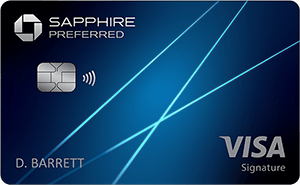
- 5X points on Lyft rides through September 2027
- 5X points on travel purchased through Chase Travel℠
- 3X points on dining at restaurants worldwide
- 3X points on eligible streaming services
- 3X points on online grocery purchases (excluding Target, Walmart, and wholesale clubs)
- 2X points on all other travel
- 1X point per dollar spent on all other purchases
But where Chase stands out is its no-annual-fee cards, such as the Chase Freedom Unlimited® (Rates & Fees) and Chase Freedom Flex℠.
Notably, the cash back earned on these cards can be converted into Chase Ultimate Rewards if you hold one of Chase's Ultimate Rewards cards with an annual fee. Coupling these cards together allows you to maximize the rewards you earn on all your spending, not just your travel and dining purchases.
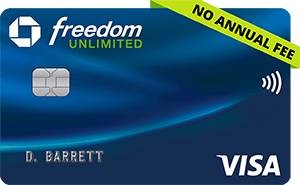
- Earn 5% on purchases through Chase Travel℠
- Earn 3% on dining at restaurants
- Earn 3% on drugstore purchases
- Earn 1.5% on all purchases

- Earn 5% on up to $1,500 on combined purchases in bonus categories each quarter you activate
- Earn 5% on travel purchased through Chase Ultimate Rewards
- Earn 3% on dining at restaurants, including takeout and eligible delivery services
- Earn 3% on drugstore purchases
- Earn 1% on all other purchases
Winner: Chase. The ability to maximize rewards on so many different categories can't be beat.
Business cards
Chase and Amex compete across several business card categories. Both issuers offer both premium and no-annual-fee business cards and something in between.
In the premium category, Chase offers the Sapphire Reserve for Business℠ (Rates & Fees). This card carries an annual fee of $795 and affords several statement credit-style benefits, airport lounge access, and lucrative earning categories, such as 8x points on all Chase Travel℠ purchases; 5x total points on Lyft rides through 9/30/27; 4x points on flights and hotels booked direct; 3x points on social media and search engine advertising; and 1x points on all other purchases.
- Earn 200,000 bonus points after you spend $30,000 on purchases in your first 6 months from account opening.
- $6,500+ in value your first year. 200K points, valued at $4,000 for select flights and hotels through Chase Travel℠, plus $2,500+ in annual value through travel and business benefits.
- Earn 8x points on Chase Travel℠ for airline tickets, hotels, including The Edit℠, car rentals, cruises, activities and tours.
- Earn 5x total points on Lyft rides through 9/30/27.
- Earn 4x points on flights & hotels booked direct.
- Earn 3x points on social media & search engine advertising.
- Get the most flexible travel credit compared to any other card, with up to $300 in statement credits each anniversary year on travel purchases.
- Enjoy complimentary access to the Chase Sapphire Lounge® by The Club network and Priority Pass™ Select membership. Two guests may accompany the Primary Cardmember to the lounges free of charge.
- Member FDIC
- 8X points on all Chase Travel℠ purchases
- 5X total points on eligible Lyft rides through 9/30/2027
- 4x points on flights and hotels booked directly
- 3x points on advertising purchases made with social media platforms and search engines
- 1 point per dollar on all other eligible purchases
Amex’s comparable premium card is The Business Platinum Card® from American Express, which comes with an $895 (Rates & Fees) annual fee. Like the Sapphire Reserve Business, it offers lounge access, numerous statement credits, and a long list of travel and several business perks.
- Elevated Welcome Offer: Earn 200,000 Membership Rewards® points after you spend $20,000 in eligible purchases on the Business Platinum Card® within the first 3 months of Card Membership.
- The American Express Global Lounge Collection® can provide an escape at the airport. With complimentary access to more than 1,550 airport lounges across 140 countries and counting, you have more airport lounge options than any other credit card company on the market as of 07/2025.
- See how you can unlock over $3,500 in business and travel value annually after meeting qualifying spend thresholds on the Business Platinum Card. Terms apply.
- Get up to $300 in statement credits semi-annually for up to a total of $600 in statement credits per calendar year on prepaid Fine Hotels + Resorts® or The Hotel Collection bookings through American Express Travel using the Business Platinum Card®. The Hotel Collection requires a minimum two-night stay.
- No Preset Spending Limit: The spending limit on the Business Platinum Card is flexible, so unlike a traditional credit card with a set limit, the amount you can spend adapts based on factors such as your purchase, payment and credit history.
- Make the Business Platinum Card® work even harder for you. Hilton For Business members get up to $200 back per calendar year when you make an eligible purchase at Hilton properties across the globe. Benefit enrollment required.
- Fly like a pro with a $200 Airline Fee Credit. Select one qualifying airline to receive up to $200 back per year on baggage fees and other incidentals.
- Use the Business Platinum Card and get up to $209 back per calendar year on your CLEAR® Plus Membership (subject to auto-renewal).
- Maximize your time away with Fine Hotels + Resorts through Amex Travel™.
- Enroll and get up to $150 in statement credits on U.S purchases directly with Dell Technologies on the Business Platinum Card and an additional $1,000 statement credit after you spend $5,000 or more on that same Card per calendar year.
- Enroll and get a $250 statement credit after you spend $600 or more on U.S. purchases directly with Adobe per calendar year on the Business Platinum Card.
- Get up to $90 in statement credits quarterly for purchases with Indeed on the Business Platinum Card. That's up to $360 back per year. Enrollment required.
- Get up to $10 in statement credits per month for wireless telephone service purchases made directly with a wireless provider in the U.S. on the Business Platinum Card. That's up to $120 back per year. Enrollment required.
- 2X points on purchases at U.S. construction material & hardware suppliers, electronic goods retailers and software & cloud system providers, and shipping providers, as well as on each eligible purchase of $5,000 or more, up to $2 million of these purchases per calendar year. Purchases eligible for multiple additional point bonuses will only receive the highest eligible bonus.
- 5X points on flights and prepaid hotels on AmexTravel.com
- 1X points on other eligible purchases
- $895 Annual Fee.
- Terms Apply.
- Earn 5X points on flights and prepaid hotels on AmexTravel.com.
- Earn 2X points on each eligible purchase of $5,000 or more.
- Earn 2X points on each eligible purchase with U.S. construction material and hardware suppliers.
- Earn 2X points on each eligible purchase with U.S. electronic goods retailers and software & cloud system providers.
- Earn 2X points on each eligible purchase with U.S. shipping providers.
- 2X earning rates are subject to a cap of $2 million in purchases per calendar year.
But given there are so many similarities and differences between the two, we’ve dedicated an entire post to comparing them in detail.
Amex also has a fantastic no-annual-fee card, The Blue Business® Plus Credit Card from American Express, which earns 2x points on the first $50,000 spent each year (then 1X). Despite its $0 annual fee (Rates & Fees), it still earns transferable Membership Rewards points — something there's no Chase equivalent to.
- Earn 15,000 Membership Rewards® points after you spend $3,000 in eligible purchases on the Card within your first 3 months of Card Membership.
- 0.0% intro APR on purchases for 12 months from the date of account opening, then a variable rate, 16.74% - 26.74%, based on your creditworthiness and other factors at account opening. APR will not exceed 29.99%
- Earn 2X points on everyday business purchases such as office supplies or client dinners. 2X applies to the first $50,000 in purchases per year, 1 point per dollar thereafter. Terms and limitations apply.
- You've got the power to spend beyond your credit limit* with Expanded Buying Power. *The amount you can spend above your credit limit is flexible, so it adapts with your use of the Card, your payment history, credit record, financial resources known to us, and other factors. Just remember, the amount you can spend with Expanded Buying Power is not unlimited.
- No Annual Fee
- Terms Apply.
- Earn 2X points on everyday business purchases such as office supplies or client dinners. 2X applies to the first $50,000 in purchases per year, 1 point per dollar thereafter. Terms and limitations apply.
While Chase’s Ink Business Cash® Credit Card (Rates & Fees) and Ink Business Unlimited® Credit Card (Rates & Fees) are excellent no-annual-fee business cards, you’ll need to pair them with an annual-fee-carrying Ultimate Rewards card that allows transfers to travel partners if you want to tap into better value — such as the Ink Business Preferred® Credit Card, which has a $95 annual fee.
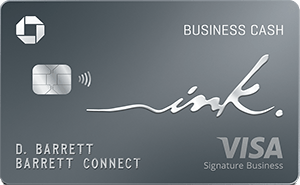
- 5% cash back on the first $25,000 spent in combined purchases at office supply stores and on internet, cable and phone services each account anniversary year
- 2% cash back on the first $25,000 spent in combined purchases at gas stations and restaurants each account anniversary year
- 1% cash back on all other card purchases with no limit to the amount you can earn
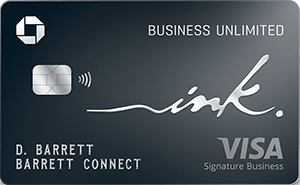
- Earn unlimited 1.5% cash back on every purchase made for your business
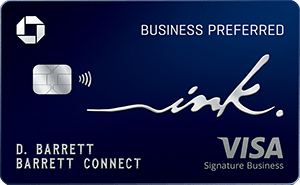
- 3X points per $1 on the first $150,000 spent in combined purchases on travel, shipping purchases, Internet, cable and phone services, advertising purchases made with social media sites and search engines each account anniversary year
- 1X point per $1 on all other purchases
Winner: American Express
Related: How to Get a Business Card in 3 Steps
Shopping portals
Another way to earn both Chase and Amex points is through shopping portals. While Chase has its own shopping portal, Amex relies on Rakuten to earn points. There's not a huge difference in earnings between the pair, but the rewards you'll earn with Chase will depend on which card you hold. This can be frustrating if you end up losing out on points because you don't have the right card.

Winner: American Express
Card offers
Both Chase and Amex have offers available to cardholders, though they're targeted, so not everyone sees the same thing. Chase Offers tend to focus on money back — either as a percentage or a flat rate.
Amex Offers are a different game entirely. You'll find multipliers for specific merchants, bonus points for spending a certain amount of money, or money back on your purchases. Time it correctly, and they're an easy way to significantly boost your Amex balance.
Winner: American Express
Chase Ultimate Rewards vs. Amex Membership Rewards: Card Restrictions
Both Chase and American Express have their own restrictions when it comes to opening credit cards. Chase uses the 5/24 rule, which looks at how many credit cards you've opened in the last 24 months.
American Express has a more complicated set of rules than Chase. Generally speaking, you'll be able to hold five traditional credit cards and 10 cards with no preset spending limit at a time.
However, American Express tends to be much more restrictive when it comes to earning welcome offers. Much of the time, you'll only be eligible to earn a welcome offer for a card once per lifetime.
This is in contrast to Chase, whose most restrictive language limits you to earning a bonus once every 48 months, though there are exceptions.
Winner: Chase
Related: Understanding Rewards Credit Card Application Rules and Restrictions
Chase Ultimate Rewards vs. Amex Membership Rewards: Redeeming Points
The points that you earn with Amex and Chase can be redeemed in a variety of ways, with some providing much more value than others.
Transfers
The best way to redeem your points with both currencies is via transfers. This involves converting your points to hotel and airline partners — but we'll talk more about that below.
Amex and Chase will occasionally offer transfer bonuses for these partners. In the past, these have been more common with Amex, but Chase has been doing its best to catch up. Bonuses can range from 10% to 50% and include partners such as Avianca LifeMiles, Marriott Bonvoy, Virgin Atlantic, Hilton Honors, British Airways Avios, and more.
According to recent AwardWallet user redemptions, the average value of an Amex point is 1.98¢. Meanwhile, the average value of a Chase point is 1.99¢. These are heavily influenced by taking advantage of each program's transfer partners.
Gift cards
It's possible to redeem your Chase and Amex points for gift cards, but this generally represents a poor use of points. Expect a value of 0.5 to 1 cent per point when redeemed this way.
Travel portals
Amex and Chase both operate a portal through which you can book a variety of travel. Amex Travel® offers flights, hotels, vacation rentals, rental cars, and cruises, while Chase Travel℠ also includes activities and event tickets.
Generally speaking, you'll get between 0.7 to 1 cent of value when booking travel through these portals using your points. There are two exceptions to this.
The first is with Chase, which offers a feature called “Points Boost.” Depending on which card you have, you can get up to 2 cents per point on “top booked hotels and flights with select airlines” through the Chase Travel portal. This program replaced the fixed-value redemptions you might remember. Chase’s premium cards offer the highest redemption rate on Points Boost bookings, while mid-tier personal and business cards offer slightly lower value.
Within the Amex ecosystem, the Business Platinum Card provides a 35% rebate on some flights. These include first- and business-class flights booked with any airline or flights in any cabin booked with your selected airline. Taking advantage of the rebate yields you 1.54 cents in value per Amex point. Enrollment is required for select Amex benefits.
Cash back and statement credits
Chase's Pay Yourself Back allows you to redeem your points for cash back at varying values, depending on what card you have and the eligible purchase categories — typically around 1¢ each. Amex allows for redeeming points at 0.6¢ apiece as a statement credit.
Pay With Points
It's possible to use your points for purchases on other websites, though this is another low-value redemption. Paying on Amazon will fetch around 0.5¢ in value from each point.
Winner: Chase. None of these options are great, but the ability to book all your travel with a value of up to 2 cents each puts Chase ahead of Amex.

Chase Ultimate Rewards vs. Amex Membership Rewards: Transfer Partners
Chase and Amex both have a long list of transfer partners, including options with hotels and airlines. Amex beats out Chase with numbers at 20 to 13, though not all are equally valuable.
American Express Membership Rewards transfer partners
Related: How to Transfer Amex Points: A Step-By-Step Guide
Chase Ultimate Rewards transfer partners
Related: How to Transfer Chase Ultimate Rewards Points
As you can see, Chase and Amex have a few partners in common. This includes Avios partners (such as British Airways), Marriott Bonvoy, Air Canada Aeroplan, Flying Blue, JetBlue, Singapore Airlines, and Virgin Atlantic.
That's quite a lot of overlap, but this can be helpful if you've got points from both programs and want to pool your points for a redemption.
Best transfer partners for Amex
Although it offers transfers to some hotel programs, Amex is strongest when it comes to its airline partners. It's best — by far — is ANA Mileage Club. This Japanese airline maintains a distance-based award chart that allows for some of the cheapest redemptions around. This includes one-way business class flights to Europe for just 50,000 miles.
Other good options include:
- Air Canada Aeroplan: Allows stopovers for just 5,000 more points.
- Avianca LifeMiles: Allows you to mix and match cabins on booking to reduce costs.
- Flying Blue: Monthly promotions for discounted rewards make these especially valuable.
- Virgin Atlantic Flying Club: Book business-class flights on ANA between the U.S. and Japan from just 52,500 points.
- JetBlue TrueBlue: Offers decent award availability and pricing for Qatar Airways Qsuites.
Related: How to Redeem American Express Membership Rewards Points — And Which Options Are Best
Best transfer partners for Chase
World of Hyatt is well-known as Chase's best transfer partner. This is thanks to the generous award chart the program employs, which will get you a stay in a hotel starting at 3,500 points.
Other good options include:
- Air Canada Aeroplan
- Flying Blue
- Virgin Atlantic
- JetBlue TrueBlue
Medium-value partners
While these transfer partners aren't the best, they still can provide decent value in certain circumstances. All of these are shared between the two programs:
- Avios (British Airways, Aer Lingus, Iberia, Finnair, Qatar Airways): These can be good for some distance-based redemptions but can charge extortionate fees.
- Singapore Airlines KrisFlyer: Singapore gives much better award space access to bookings on its platform.
Note that Qatar Airways is only a partner of Amex, but since Avios are interchangeable between all programs, it's essentially also a Chase partner.
Least valuable transfer partners for Amex
These partners are going to give you the least value for your points.
- Aeromexico Rewards: Expensive rewards.
- Delta SkyMiles: Expensive rewards.
- Etihad Guest: Expensive rewards and punitive cancellation policy.
- Qantas Frequent Flyer: A distance-based chart with high prices, though an around-the-world ticket can still have good value.
- Choice Privileges: Far less valuable than using Amex points with other methods. Plus, you can transfer Citi ThankYou® points to Choice for more value.
- Hilton Honors: Far less valuable than Amex points.
- Marriott Bonvoy: Fully dynamic pricing regularly results in nightly rates of 100,000+ points.
Least valuable transfer partners for Chase
These partners are the least valuable for Chase points:
- Southwest Rapid Rewards: Point cost is directly tied to the cash cost of a flight, and your points may be worth more in Chase's portal.
- IHG One Rewards: A fully dynamic pricing system with ridiculous nightly rates.
- Marriott Bonvoy: For the same reasons as IHG One Rewards.
- United MileagePlus: Continued devaluations make redemptions with this airline a poor value.
Winner: Amex. It has more partners and more valuable partners than Chase.

Chase Ultimate Rewards vs. Amex Membership Rewards: Combining Points
Amex and Chase are both fairly strict when it comes to combining your points. Amex doesn't allow you to pool points with anyone else, though if someone is an authorized user on your account (and has been for at least 90 days), you can transfer your points to their loyalty program account.
Chase allows you to combine your points with one other member of your household. Business owners are able to transfer their points to other employees listed on the business account.
Winner: Chase. While neither is ideal, its program is a bit more flexible.
Related: Which Rewards Programs Let You Pool Points and Miles With Others For Free?
Which Should You Choose: Chase Ultimate Rewards or Amex Membership Rewards?
American Express and Chase points are both highly valuable and should be treated as such. And in our opinion, your best bet is to earn rewards in both currencies to take advantage of all their benefits.
However, if you're determined to stick to a single program, consider the type of activities that you're doing. For example, if you want to travel but don't want to research transfer partners, Chase cards will provide better value for redemptions within the portal.
On the flip side, Amex offers more transfer partners, and its points are regularly redeemed at a higher value than Chase points. You're also able to earn Amex points with a no-annual-fee card without needing to combine it with another card — a benefit Chase doesn't provide.
If you're a frequent traveler, you'll also want to consider which program has which transfer partners. Hyatt loyalists looking to keep their Globalist elite status will find Chase points especially rewarding, while those looking for discounted business class rewards will want to focus on Amex.
In the end, choosing Chase Ultimate Rewards or American Express Membership Rewards is going to be a personal decision. Do your homework, check out earning and redeeming, and select the program that best suits your needs. Or maybe hedge your bets by collecting both.
Which program do you prefer: Amex Membership Rewards or Chase Ultimate Rewards? Let us know why in the comments.
For rates and fees of the cards mentioned in this post, please visit the following links: American Express Platinum Card® (Rates & Fees), Chase Sapphire Reserve® (Rates & Fees), American Express® Gold Card (Rates & Fees), Chase Sapphire Preferred® Card (Rates & Fees), Chase Freedom Unlimited® (Rates & Fees), Sapphire Reserve for Business℠ (Rates & Fees), The Business Platinum Card® from American Express (Rates & Fees), The Blue Business® Plus Credit Card from American Express (Rates & Fees), Ink Business Cash® Credit Card (Rates & Fees), and Ink Business Unlimited® Credit Card (Rates & Fees)
The comments on this page are not provided, reviewed, or otherwise approved by the bank advertiser. It is not the bank advertiser's responsibility to ensure all posts and/or questions are answered.


